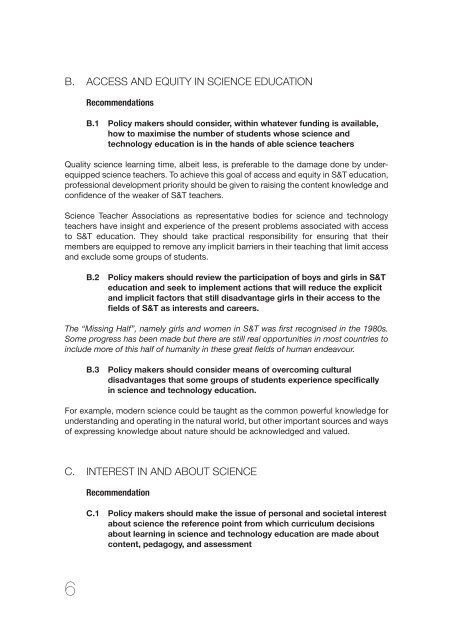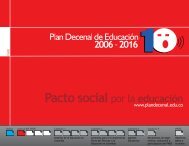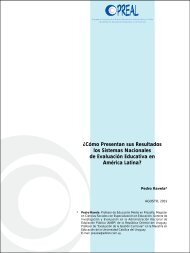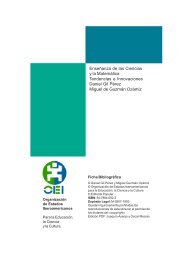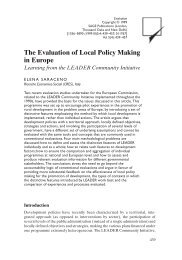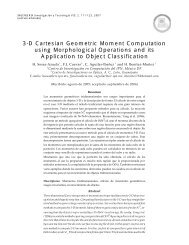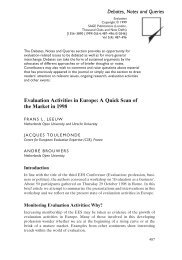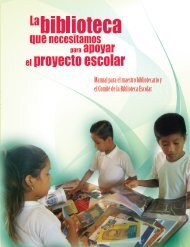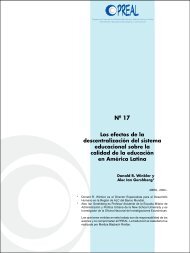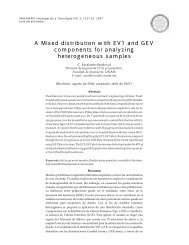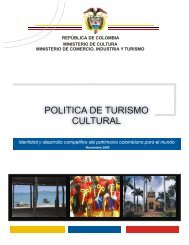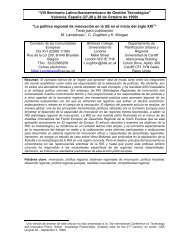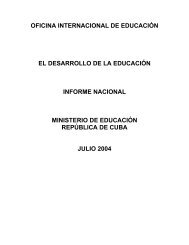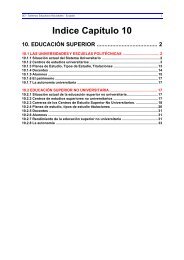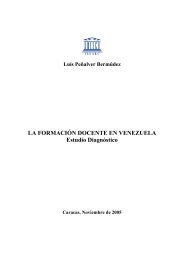Science education policy-making: eleven emerging issues; 2008 - OEI
Science education policy-making: eleven emerging issues; 2008 - OEI
Science education policy-making: eleven emerging issues; 2008 - OEI
Create successful ePaper yourself
Turn your PDF publications into a flip-book with our unique Google optimized e-Paper software.
B. ACCESS AND EQUITY IN SCIENCE EDUCATION<br />
Recommendations<br />
B.1 Policy makers should consider, within whatever funding is available,<br />
how to maximise the number of students whose science and<br />
technology <strong>education</strong> is in the hands of able science teachers<br />
Quality science learning time, albeit less, is preferable to the damage done by underequipped<br />
science teachers. To achieve this goal of access and equity in S&T <strong>education</strong>,<br />
professional development priority should be given to raising the content knowledge and<br />
confidence of the weaker of S&T teachers.<br />
<strong>Science</strong> Teacher Associations as representative bodies for science and technology<br />
teachers have insight and experience of the present problems associated with access<br />
to S&T <strong>education</strong>. They should take practical responsibility for ensuring that their<br />
members are equipped to remove any implicit barriers in their teaching that limit access<br />
and exclude some groups of students.<br />
B.2 Policy makers should review the participation of boys and girls in S&T<br />
<strong>education</strong> and seek to implement actions that will reduce the explicit<br />
and implicit factors that still disadvantage girls in their access to the<br />
fields of S&T as interests and careers.<br />
The “Missing Half”, namely girls and women in S&T was first recognised in the 1980s.<br />
Some progress has been made but there are still real opportunities in most countries to<br />
include more of this half of humanity in these great fields of human endeavour.<br />
B.3 Policy makers should consider means of overcoming cultural<br />
disadvantages that some groups of students experience specifically<br />
in science and technology <strong>education</strong>.<br />
For example, modern science could be taught as the common powerful knowledge for<br />
understanding and operating in the natural world, but other important sources and ways<br />
of expressing knowledge about nature should be acknowledged and valued.<br />
C. INTEREST IN AND ABOUT SCIENCE<br />
Recommendation<br />
C.1 Policy makers should make the issue of personal and societal interest<br />
about science the reference point from which curriculum decisions<br />
about learning in science and technology <strong>education</strong> are made about<br />
content, pedagogy, and assessment<br />
6


